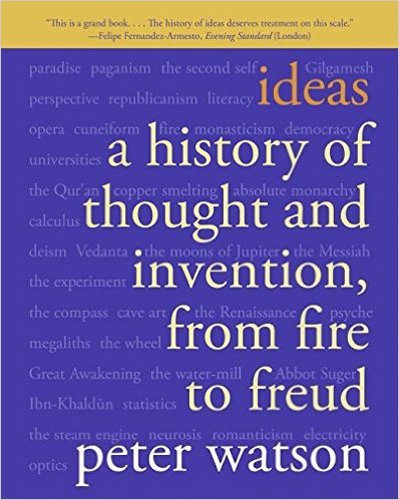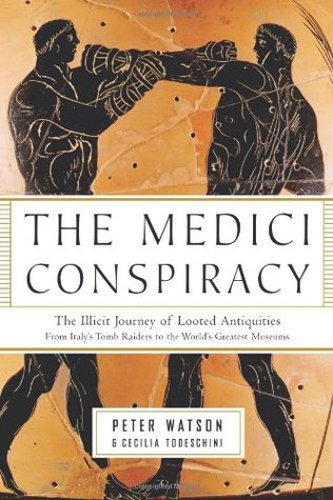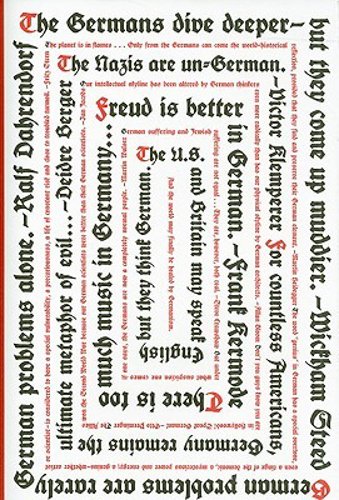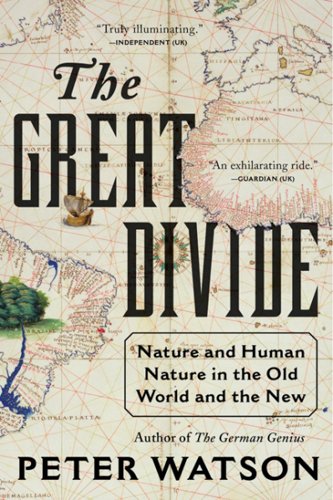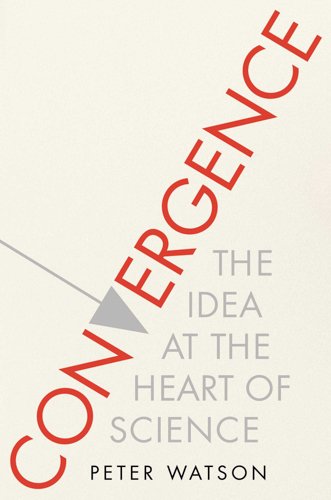Peter Watson
Peter Watson has been a senior editor at the London Sunday Times, the New York correspondent of the daily Times and a columnist for the Observer. He has also written regularly for the New York Times and the Spectator. He is the author of many books of cultural and intellectual history, including Convergence: The Idea at the Heart of Science, Ideas: A History of Thought and Invention, The German Genius, The Great Divide, and The Medici Conspiracy. From 1997 to 2007 he was a research associate at the McDonald Institute for Archaeological Research at the University of Cambridge. He lives in London.
For more information about Peter Watson:
News
Peter Watson’s THE FRENCH MIND, published in the UK by Simon & Schuster, has been shortlisted for the American Library in Paris Book Award 2022.
Books
Ideas: A History of Thought and Invention, From Fire To Freud
Peter Watson's hugely ambitious and stimulating history of ideas from deep antiquity to the present day—from the invention of writing, mathematics, science, and philosophy to the rise of such concepts as the law, sacrifice, democracy, and the soul—offers an illuminated path to a greater understanding of our world and ourselves.
(Harper Perennial, September 2006)
The Medici Conspiracy: The Illicit Journey of Looted Antiquities--From Italy's Tomb Raiders to the World's Greatest Museums
The story begins, as stories do in all good thrillers, with a botched robbery and a police chase. Eight Apuleian vases of the fourth century B.C. are discovered in the swimming pool of a German-based art smuggler. More valuable than the recovery of the vases, however, is the discovery of the smuggler's card index detailing his deals and dealers. It reveals the existence of a web of tombaroli—tomb raiders— who steal classical artifacts, and a network of dealers and smugglers who spirit them out of Italy and into the hands of wealthy collectors and museums. Peter Watson, a former investigative journalist for the London Sunday Times and author of two previous exposés of art world scandals, names the key figures in this network that has depleted Europe's classical artifacts. Among the loot are the irreplaceable and highly collectable vases of Euphronius, the equivalent in their field of the sculpture of Bernini or the painting of Michelangelo. The narrative leads to the doors of some major institutions: Sothebys, the Getty Museum in L.A., the Museum of Fine Arts in Boston, and the Metropolitan Museum of Art in New York among them. Filled with great characters and human drama, The Medici Conspiracy authoritatively exposes another shameful round in one of the oldest games in the world: theft, smuggling and duplicitous dealing, all in the name of art.
(Public Affairs, April 2006)
The German Genius: Europe's Third Renaissance, the Second Scientific Revolution, and the Twentieth Century
From the end of the Baroque age and the death of Bach in 1750 to the rise of Hitler in 1933, Germany was transformed from a poor relation among Western nations into a dominant intellectual and cultural force more influential than France, Britain, Italy, Holland, and the United States. In the early decades of the twentieth century, German artists, writers, philosophers, scientists, and engineers were leading their freshly unified country to new and undreamed-of heights, and by 1933 they had won more Nobel prizes than anyone else and more than the British and Americans combined. But this genius was cut down in its prime with the rise and subsequent fall of Adolf Hitler and his fascist Third Reich--a legacy of evil that has overshadowed the nation's contributions every since.
Yet how did the Germans achieve their preeminence beginning in the mid-eighteenth century? In this absorbing cultural history, Peter Watson goes back through time to explore the origins of the German genius, how it flourished, and how it continues to shape our world. As he convincingly demonstrates, while we may hold other European cultures in higher esteem, it was German thinking--from Bach to Nietzsche to Freud--that actually shaped modern America and Britain in ways that resonate today.
(HarperCollins, July 2010)
The Great Divide: Nature and Human Nature in the Old World and the New
Why did Asia and Europe develop far earlier than the Americas? What were the factors that accelerated - or impeded - development? How did the experiences of Old World inhabitants differ from their New World counterparts - and what factors influenced those differences?
In this fascinating and erudite history, Peter Watson ponders these questions central to the human story. By 15,000 BC, humans had migrated from northeastern Asia across the frozen Bering land bridge to the Americas. When the world warmed up and the last Ice Age came to an end, the Bering Strait refilled with water, dividing America from Eurasia. This division - with two great populations on Earth, each unaware of the other - continued until Christopher Columbus voyaged to the New World in the fifteenth century.
The Great Divide compares the development of humankind in the Old World and the New between 15,000 BC and AD 1500. Watson identifies three major differences between the two worlds - climate, domesticable mammals, and hallucinogenic plants - that combined to produce very different trajectories of civilization in the two hemispheres. Combining the most up-to-date knowledge in archaeology, anthropology, geology, meteorology, cosmology, and mythology, this unprecedented, masterful study offers uniquely revealing insight into what it means to be human.
(HarperCollins, June 2012)
Convergence: The Idea at the Heart of Science
A brilliant history of science over the past 150 years that offers a powerful new argument—that the many disparate scientific branches are converging on the same truths.
Convergence is a history of modern science with an original and significant twist. Various scientific disciplines, despite their very different beginnings, have been coming together over the past 150 years, converging and coalescing. Intimate connections have been discovered between physics and chemistry, psychology and biology, genetics and linguistics. In this groundbreaking book, Peter Watson identifies one extraordinary master narrative, capturing how the sciences are slowly resolving into one overwhelming, interlocking story about the universe.
(Simon & Schuster, February 2017)


